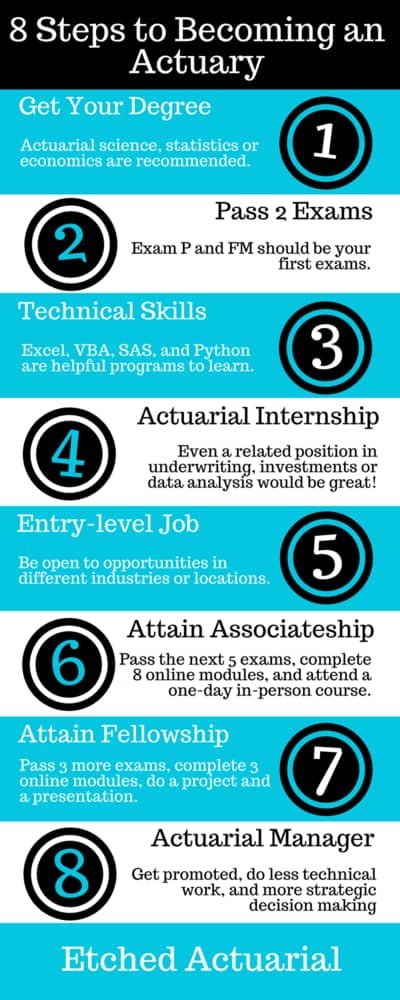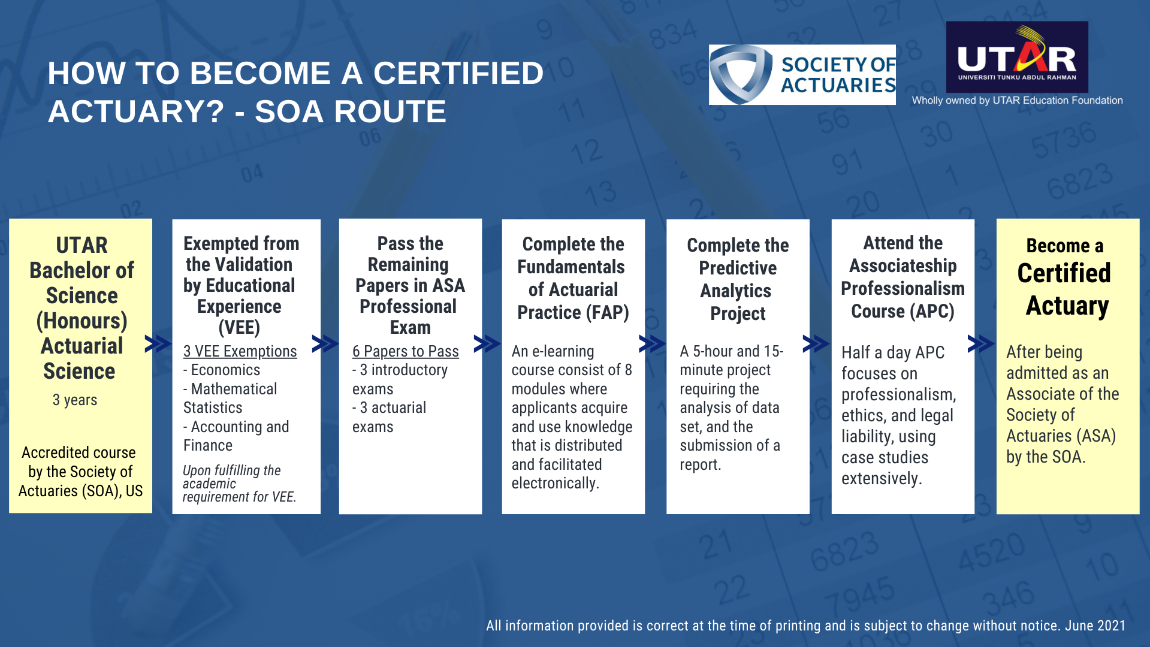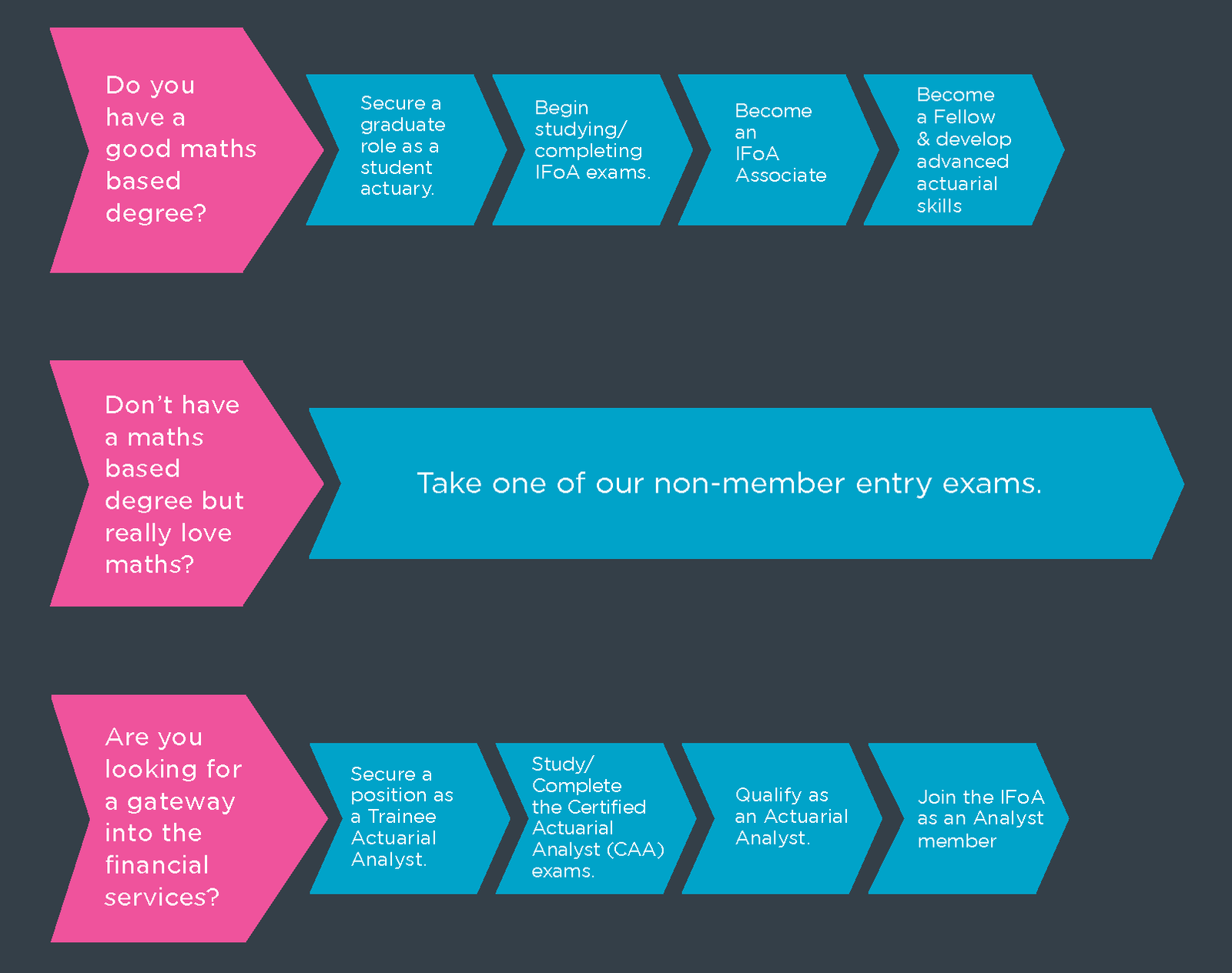If you’re a student considering a career as an actuary in the USA, you’re in the right place! In this article, we’ll walk you through the steps to become an actuary in the United States. From educational requirements to professional exams, we’ll provide you with all the information you need to kickstart your journey towards this rewarding profession. So, let’s dive in and explore how you can pursue a career as an actuary in the USA!
Steps to Become an Actuary in the USA

This image is property of etchedactuarial.com.
Understand the Role of an Actuary
Before embarking on the journey to become an actuary, it is important to have a clear understanding of the role and responsibilities that come with it. Actuaries are professionals who use their mathematical and statistical skills to assess and manage risk in various industries, such as insurance, finance, and consulting. They analyze data, develop mathematical models, and make projections to help organizations make informed decisions. Actuaries also play a crucial role in determining insurance premiums and assessing the financial health of companies. By understanding the importance and impact of this profession, you can better appreciate the steps needed to become an actuary in the USA.
Evaluate Your Skills and Interests
As you consider a career as an actuary, it is essential to evaluate your skills and interests. Actuaries typically possess strong analytical and problem-solving abilities, as well as a knack for numbers and statistics. If you enjoy working with data, analyzing trends, and solving complex problems, a career as an actuary might be a good fit for you. Additionally, strong communication skills, attention to detail, and the ability to work well under pressure are also important qualities for actuaries. Taking the time to assess your aptitude and interests will help you determine whether pursuing a career as an actuary aligns with your strengths and goals.

This image is property of www.thestreet.com.
Pursue a Bachelor’s Degree in Actuarial Science or a Related Field
To become an actuary in the USA, obtaining a bachelor’s degree is typically a prerequisite. While a degree in actuarial science is not mandatory, it is undoubtedly advantageous. Actuarial science programs provide a curriculum specifically tailored to develop the necessary knowledge and skills required in the field. These programs often cover subjects such as mathematics, statistics, economics, finance, and risk analysis. Some universities even offer specialized actuarial science programs that have been accredited by professional actuarial organizations, further enhancing your employability. If a dedicated actuarial science program is not available, a degree in a related field such as mathematics, statistics, or economics can still provide a solid foundation for a career in actuarial science.
Join Professional Actuarial Organizations
Once you have decided to pursue a career as an actuary, joining professional actuarial organizations can provide you with valuable resources and networking opportunities. In the USA, two main organizations for actuaries are the Society of Actuaries (SOA) and the Casualty Actuarial Society (CAS). Both organizations offer student memberships and provide access to study materials, actuarial exams, and mentorship programs. Joining these organizations will not only allow you to stay updated on industry developments but also help you connect with experienced professionals who can offer guidance and support throughout your journey to becoming an actuary.

This image is property of study.utar.edu.my.
Consider Obtaining an Internship
Gaining practical experience through internships can significantly enhance your prospects as an aspiring actuary. Many companies offer actuarial internships that provide hands-on training and exposure to real-world actuarial work. Internships allow you to apply your knowledge in a professional setting, work alongside experienced actuaries, and gain a deeper understanding of the day-to-day responsibilities of the profession. Moreover, internships provide an opportunity to build a network and establish connections within the industry. Actuarial internships are often highly competitive, so it is crucial to start exploring and applying for internships early on in your academic journey.
Pass Actuarial Exams
The road to becoming an actuary involves successfully passing a series of rigorous actuarial exams. These exams are conducted by professional actuarial organizations, namely the SOA and the CAS. The number of exams and their specific requirements may vary depending on the desired specialization and the organization you choose to be certified with. Actuarial exams are typically divided into various levels, with each level representing a higher degree of knowledge and proficiency. It is essential to dedicate significant time and effort to prepare for these exams as they require a deep understanding of mathematical concepts, statistics, and actuarial theory. Many aspiring actuaries choose to join study groups or take advantage of exam preparation resources offered by actuarial organizations to enhance their chances of success.

This image is property of actuaries.org.uk.
Gain Relevant Work Experience
While passing actuarial exams demonstrates your technical proficiency, gaining relevant work experience is equally important. Actuarial internships, as mentioned earlier, provide an excellent opportunity to gain initial practical experience. However, securing full-time employment in the actuarial field can further solidify your skills and knowledge. Actuarial positions can be found in various industries, including insurance companies, consulting firms, and government agencies. Working under the guidance of experienced professionals allows you to apply the concepts learned through exams and further develop your actuarial expertise. Additionally, gaining practical experience may also fulfill the work experience requirements necessary to obtain actuarial certification.
Apply for Actuarial Positions
Once you have obtained the necessary education, passed actuarial exams, and gained relevant work experience, it is time to start applying for actuarial positions. Actuarial job openings can be found through online job portals, professional actuarial organizations, and company websites. Tailor your application materials, including your resume and cover letter, to highlight your actuarial qualifications and relevant experiences. Actuarial positions may vary in terms of specialization, so it is important to identify the areas of actuarial practice that align with your skills and interests. Actuarial roles often require strong quantitative skills, critical thinking, and the ability to communicate complex concepts effectively. Putting in the effort to showcase these qualities in your applications will increase your chances of landing a rewarding actuarial position.

This image is property of www.forbes.com.
Continue Professional Development
Becoming an actuary is not the end of your professional journey; it is the beginning of a lifelong learning process. Actuarial science is a constantly evolving field, with advancements in technology, regulations, and industry practices. To stay relevant and excel in your career, it is crucial to continue your professional development. Actuarial organizations offer various resources, such as continuing education programs, webinars, and conferences, to facilitate ongoing learning. Additionally, staying up to date with industry publications, networking with other professionals, and pursuing advanced certifications can further enhance your knowledge and open doors to new opportunities in the field.
Obtain Actuarial Certification
Obtaining actuarial certification is the final step in becoming a fully recognized and credentialed actuary. Depending on the specialization and the organization you choose to certify with, the certification process may involve completing additional exams, meeting certain work experience requirements, and adhering to professional standards of conduct. The most widely recognized actuarial certifications in the USA are the Associate of the Society of Actuaries (ASA) and the Fellow of the Society of Actuaries (FSA), offered by the SOA. The CAS also offers certifications specific to the property and casualty insurance field. Actuarial certification not only demonstrates your technical expertise but also increases your credibility and employability within the actuarial profession.
In conclusion, becoming an actuary in the USA requires a combination of education, exams, work experience, and ongoing professional development. By following these steps, you can embark on a rewarding career that allows you to apply your mathematical and analytical skills to shape the future of risk management in various industries. Remember to stay determined, build a strong network of professionals, and seize opportunities as they arise. With dedication and perseverance, you can achieve your goal of becoming a successful actuary in the USA.